Reselling is an ecommerce business model that can prove to be quite profitable, with some business owners in the niche comfortably generating six or seven figures annually in revenue within the just first few years of starting.
As a result, this potential for success attracts many new entrepreneurs to the industry. However, to be successful in this arena, you must understand how the industry works and the steps that you need to take to be a successful reseller.
After reading this guide you will understand what a reseller is and how you can become one, as well as taking in some specific reselling business ideas and some insider tips for success.
Let’s get right to it.
If you already know the ins and outs of what a reseller is, click here to jump ahead to:
- What Do I Need to Become a Reseller?
- How to Become a Reseller in 7 Simple Steps
- Reseller Business Ideas
- Tips for Reselling Success
- Start Cashing in with Reselling Today!
- Reseller FAQs
What is a Reseller?
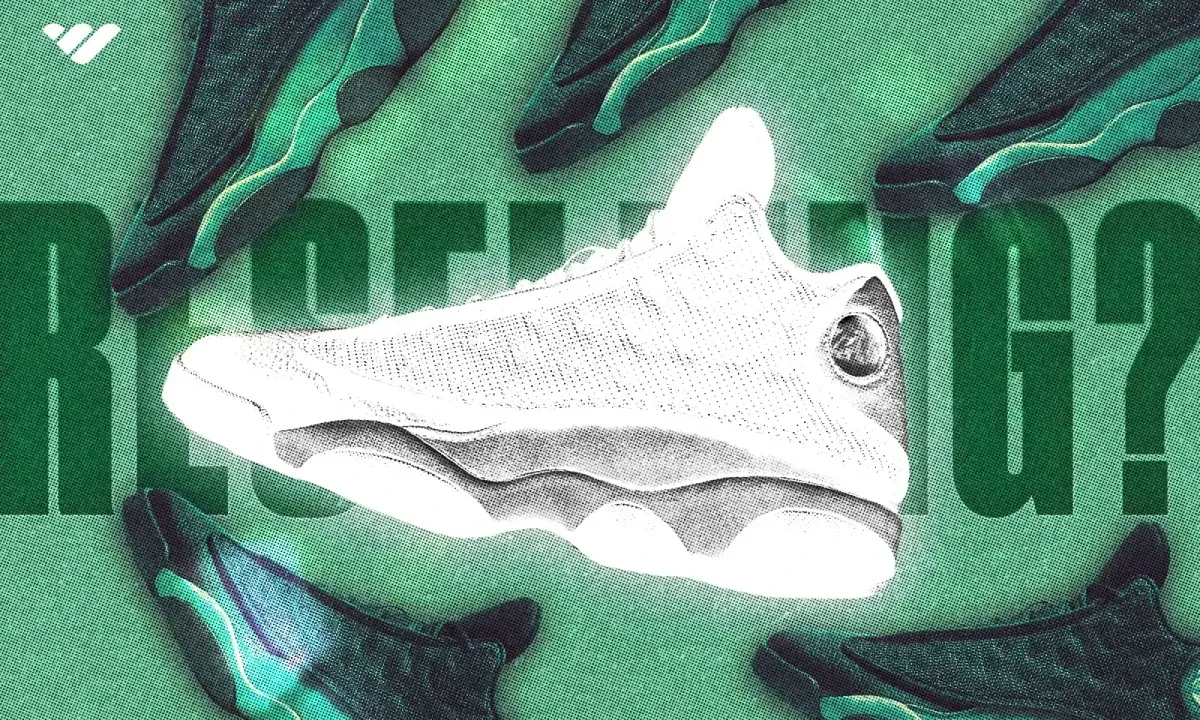
A reseller is someone who sells an existing product through their own storefront, ideally for a higher price than they paid that is still fair for the customer. Resellers generally use a direct-to-consumer (D2C) business model and sell physical goods. Since they are an intermediary between the customer and their inventory source, which is often public, they are sometimes referred to as middlemen.
They operate in many different industries and products, including sneakers, watches, vintage goods, electronics, and more. Some products such as medical devices or other specialized products cannot and should not be resold due to the requirement of specific expertise and potential health concerns for customers.
Resellers also use a variety of platforms, including popular marketplaces such as eBay and Amazon, and some build their own storefront using builders such as Shopify and WooCommerce.
These middlemen range from highly scaled and professional with large distribution and purchasing power, to individuals who are flipping single items that they buy directly from a public website.
Another form of reselling is dropshipping. With dropshipping, resellers purchase goods to a third party and never actually hold the goods in their own hands, instead delegating the production and fulfillment to a company that operates behind the scenes of their online storefront.
The barrier to entry for reselling is quite small–it’s simply limited to the cost to acquire an in-demand product at a price lower than the general public is willing to pay for it. So, starting can be quite simple if you have the correct knowledge of what products to sell, and what it generally takes to become a reseller, which we will cover next.
What Do I Need to Become a Reseller?
Becoming a reseller can be one of the fastest paths to becoming an ecommerce entrepreneur, primarily because unlike creating a product from scratch, there is no lengthy process of research, development, branding and marketing of items.
Much of what is needed comes down to the right knowledge and structure that will help lay the groundwork for you to scale and succeed.
Let’s go over some of the key components you will need to become a reseller. Some of these points we will touch on briefly before expanding more in depth on action points in the next section covering the exact steps for starting a reselling business.:
Knowledge of which products to sell
Even if you are ready to set up a business, if you are selling the wrong product, you won’t have a viable business as a reseller.
In order to resell, you need to pick a desirable niche and know enough about the product, including specific details about the hottest variations, and how and where to buy at a profitable price. There are many different types of products you can choose to resell, which we’ll go over later in the guide.
Perhaps you already have some knowledge in a certain niche, but you can always improve and make it better so that your business can stand out amongst the inevitable competition. Joining a private group will often give you the best and latest knowledge regarding profitable products to sell in.
Inventory source
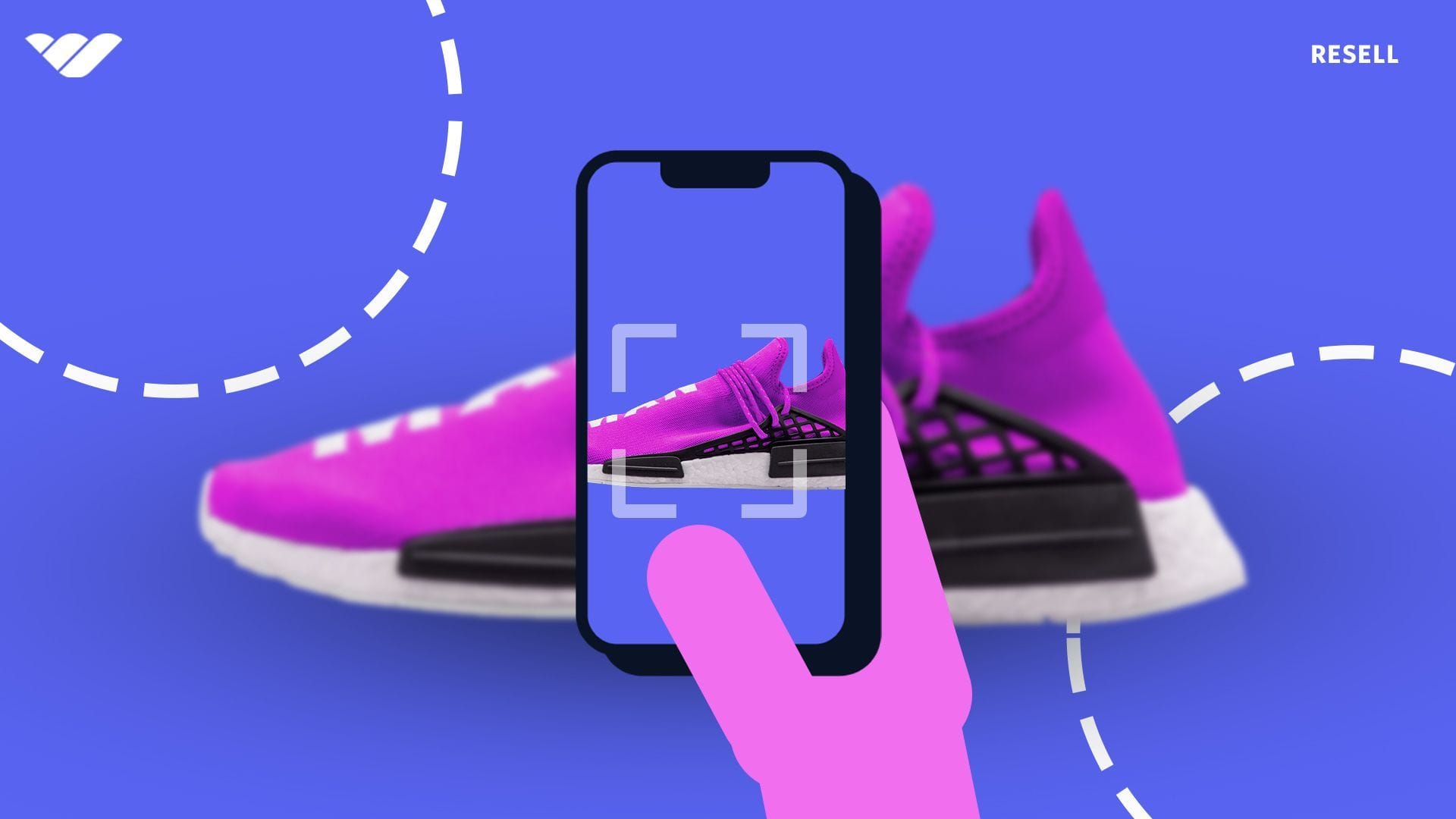
Once you pick which product to sell, you’ll need a profitable source that is hopefully reliable and relatively inaccessible or unknown to the general public.
Sometimes, your inventory source will be public but will require timing or strategies that most people are unaware of, which leaves the majority of buyers empty-handed. An example of such a source is Nike.com and its SNKRS app for limited sneakers. Although these are publicly accessible sources, the shoes sell out quickly to either those who get immediate notifications of releases or to those who are utilizing tools such as sneaker bots.
By having the right tools and methods, even in public markets, you’ll be able to source the hottest products that demand an aftermarket premium that you will be able to profit from.
Reseller’s permit or certificate
Depending on your local laws and regulations, you may need a reseller’s permit, (also known as a reseller certificate) in order to operate your business. Sometimes getting a reseller’s permit is not necessary, especially if you’re just starting off selling individual items on a public platform like eBay.
However, getting a reselling permit might be necessary to start your business as a reseller in your region or for your product category. Additionally, you may get tax benefits from having one, which is particularly useful if you’re buying product in bulk and you don’t want to have to pay sales tax twice on the purchased goods.
Business name and registration
If you’re going to do anything more than sell a handful of items here and there online or in local marketplaces, you’ll want to create a business and register it so you can benefit from a formal structure in terms of taxes and shielding from any personal liability.
To do this, you can simply pick a business name and register it in your desired location.
Be sure to pay attention to any future and present tax liability based on the region you establish your business in. You may even have to consider where you are shipping and selling your items to, as complicated issues involving things such as your sales tax nexus or physical presence might arise. With all of this in mind, if you want to set everything up properly from the beginning, it is best to talk to a specialized accountant or even a corporate lawyer who is familiar with reselling and ecommerce, ideally one in your region.
Sales channel

The last thing you’ll need once you have properly set up shop and have acquired your product is a sales channel.
With your newly secured business name, you can create a sales channel using an online storefront. This can be done on a wider marketplace like Amazon and eBay, or you can launch a store on a platform such as Shopify.
Keep in mind any associated platform fees or sales commissions that a sales channel might have, as they can be quite high, particularly in the case of a service such as Amazon FBA.
How to Become a Reseller in 7 Simple Steps
As you can see, becoming a reseller involves many small yet important aspects that you need to incorporate into an action plan complete with individual steps.
To make this easy for you, we’ve put together a step-by-step process right here that you can follow to start your reselling business.
Although it might take several weeks to months to carry out all of these steps properly, by doing so, you’ll have the greatest shot at creating a reselling business that you can scale to your desired heights.
Step 1: Choose Your Industry

Success in business takes focus, and in reselling, this advice is particularly relevant. With so many different types of products to sell and industries to sell in, if you want to have a decent level of business success, you’ll want to choose one specific industry that you become a master in.
By choosing one industry and mastering it in depth, you’ll gain a significant edge over competition that might be only skimming the surface by trying to capitalize too broadly.
Keep in mind that most of these industries are dynamic, so continued education and interest in a specific industry is a must if you want to make a name for your business in a way that will allow you to have a sustainable, long-term business.
Step 2: Check local reselling laws and regulations
After you’ve picked your industry to develop or hone your expertise in, you’ll need to double-check any local laws and regulations before going all in on it.
While it’s highly unlikely that the reselling industry that you are operating in is illegal, you may have to follow certain rules in order to remain compliant–for example, ticket reselling can have strict regional regulations. By double-checking all of these guidelines, you’ll be able to have assurance in the long run that you won’t run into any red tape or legal action that might slow down or halt your business entirely. Knowing that you are in the clear will allow you to have the confidence to scale to massive levels without any unnecessary friction.
Step 3: Register as a business

Now that you’ve chosen your product industry and reviewed your local laws, you’re ready to register as a business so that you can conduct everything formally with the potential to scale properly.
It is better to do this part sooner rather than later as especially when it comes to taxes, the type of business and its location can have a huge impact on your business model and profitability.
Be sure to consult a corporate attorney who is knowledgeable in the reselling and ecommerce realms so that you properly structure things from the beginning depending on the goals that you have and the industry that you have chosen to operate in.
Step 4: Get a reseller permit
If necessary, get a reseller permit before actively conducting business. Not only might your local laws require this, but having one can grant benefits like saving on sales taxes when buying inventory in bulk.
Additionally, having a reseller’s permit or certificate will allow you to professionally approach suppliers who might not do business with someone who does not have one.
You will have to do research based on your specific region to learn how to acquire your reseller’s permit or certificate, but once you have this, you’ll be ready for business as a reseller.
Step 5: Source inventory
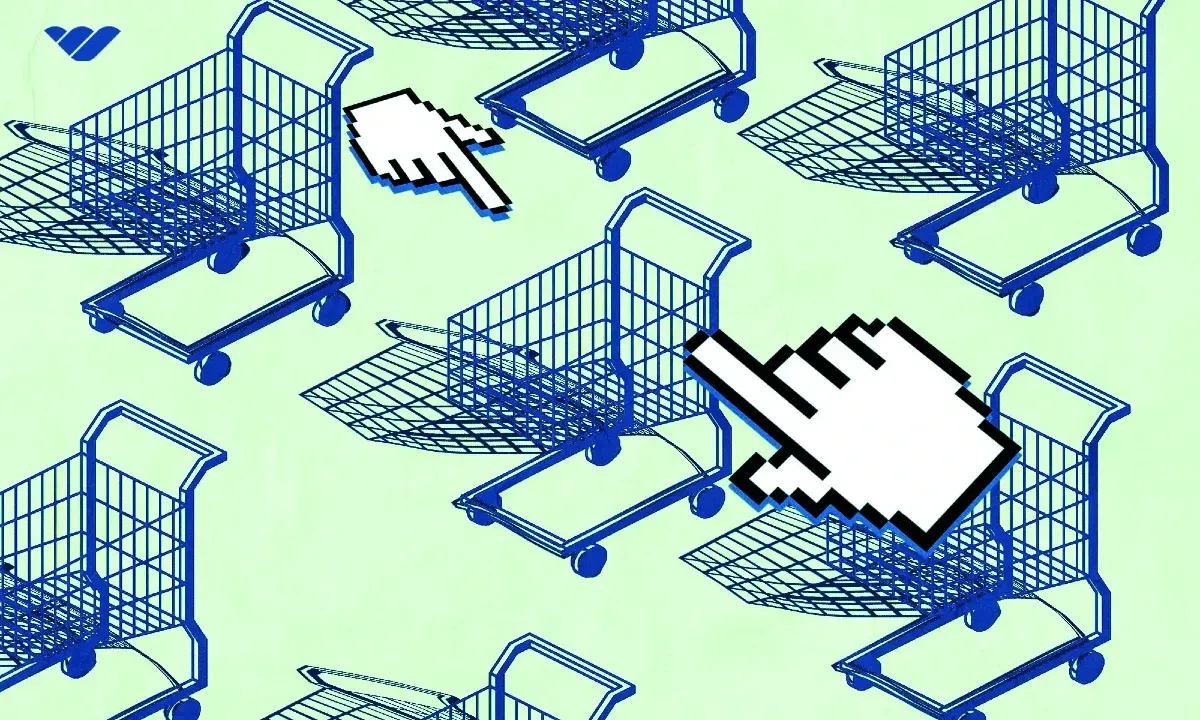
Sourcing inventory can be done as the first step, especially for small-time resellers who buy an item and flip it quickly for profit. However, if you want to have a reselling business at a large scale, you should only start doing this after having checked and performed all of the previous steps.
Product and pricing research is a key component to sourcing inventory. Simply finding product is one thing, but profitably sourcing it is an entirely different beast. In order to source your inventory profitably, you will need to have an advantage, which can come in the form of buying from a relatively unknown source or buying something quickly before it sells out.
Another way to gain a profitable inventory source is to develop a direct relationship with a wholesale distributor of your desired product. You’ll want to approach the supplier after you’ve created a formal business structure and ideally have secured any reselling permits or certificates that may be preferred or required to do business with them. Additionally, you’ll want a large budget, because generally speaking, the more money you have, the lower your cost per individual product will be as you will be making a larger order which will give you a bulk pricing discount.
Step 6: Launch your business
With the groundwork properly laid out in all of the previous steps, you are ready to launch your reselling business.
While some resellers choose to open up shop in person, you will likely open up and run your business online. As an ecommerce reseller, you’ll need to have a storefront that is attractive and easily accessible to your customer base.
Opening your online storefront can be done by building it from scratch, but today, there are many website builders and platforms that make it easy to reach an audience quickly with a professional store.
Simply pick your desired store builder or platform, and launch your business. It might be good in the beginning to test several channels before sticking to a primary sales channel so that you can know which is best for your business. It may also be a good idea to establish momentum on one channel before shifting focus toward another, such as gaining quick traction on Amazon before funneling customers to purchase directly from your website.
Step 7: Market and scale your business

Getting consistent customers is the hardest part of creating a sustainable reselling business, particularly because you are selling the exact same items as many other sellers, so certain industries can be quite saturated and competitive. Standing out and capturing loyal customers can be done with effective marketing.
Be sure to build and incorporate a comprehensive marketing strategy that utilizes a mix of organic and paid marketing so that you can capture and continue to build a strong customer base and brand reputation. Throughout this process of marketing your business, you will hopefully gain momentum that will drive your business to scale. While scaling, be sure to keep in mind KPIs and other goals that keep you on track so that you can grow your reselling business to your desired level.
7 Reseller Business Ideas
Since there are so many different industries and products in reselling, it could be helpful to gain clarity with some industries that you can use to generate ideas for your reselling business.
Here are some of the most common reselling industries:
Sneakers
One of the most well-known and established industries for resellers is sneakers. However, sneaker reselling has changed immensely in the past decade, with competition and regulations making it a totally different landscape than it once was.
Despite these changes and saturation, shoe flipping will always have its audience, but it will continue to be more important to keep up to speed with everything by having a reliable source for knowledge and education in this constantly changing niche.
Watches

The watch market is highly established, but at the same time can be considered a recently emerging trend with growing interest, particularly with younger buyers.
Some watches, such as Rolex and other high-end watches, require significant budget and connections in order to establish a profitable business with them.
Recent collaborations involving Swatch, and high-end brands like Omega and Blancpain have produced pieces that are more within the reach of the ordinary consumer, with price points that are in the range of popular sneakers.
Keep an eye on this industry and read up on it as much as you can if you want to be a watch reseller. There aren’t many, so this field isn’t quite as saturated as others, and your education can pay off handsomely in the long run.
Sports Cards
Many reselling industries saw large increases during the pandemic, and one of them that has sustained the momentum is the sports cards industry.
Although it can be profitable to buy and sell individual cards or packs, one of the most profitable methods that resellers use in this industry is card breaking - an event that involves luck and has a big potential payout for everyone involved. Card breaking is the act in which the contents of an unopened pack are revealed to its participants who have previously claimed ownership of individual cards. This sometimes results in getting a highly valuable card at a fraction of the cost, as there is often a flat fee to participate which is profitable to the reseller and fair to the participant.
Sports cards arguably have less saturation than sneakers, and their hype and demand is quickly approaching that of sneakerheads, so this is a good industry to pursue as a reseller.
Vintage goods
If you have an eye for collectibles and understand what those with a taste for classics want, you’ll probably do well in the vintage goods realm, particularly if you are a consumer of these goods yourself.
Unlike virtually every other reselling niche, vintage goods, particularly clothing, perform best when sold in person.
While eBay or Grailed are good online marketplaces with ready buyers for vintage goods, you may deal with a higher rate of returns as customers can be very particular about the product, and thorough inspection is only possible in person. Curating a store and its look using social media and selling on your own storefront while using email and social media marketing to promote is the best strategy when it comes to selling vintage goods, particularly if you have a unique and recognizable taste.
Electronics
Electronics make up a massive industry for consumer goods, so it only makes sense that some resellers build their businesses entirely in this realm, sometimes in specific niches within it.
From iPhones to gaming consoles and graphics cards, the demand for electronics is always high, and fluctuates between new items that sell out and older versions that are hard to come by or have a strong secondhand market.
Some resellers choose to make a business of buying and fixing broken electronics in order to sell them at a higher price, which is an excellent business model that you can utilize if you gain or already have that specialized knowledge.
Ticket reselling
To the disappointment of most fans of artists or events, most of the tickets to the hottest shows will sell out quickly, only to show up again on the aftermarket for higher prices. You can either choose to complain about this, or you can learn how the individuals who are getting the tickets quickly for fair prices are doing it. Keep in mind though that since recent controversies such as the debacle surrounding Taylor Swift’s 2023 concert sales, new regulations have passed that have compromised some strategies for ticket resellers such as the use of bots.
However, this market is still very much alive and well and will continue to be a profitable opportunity for resellers who learn how to play the game.
Dropshipping

Dropshipping has been around for a while, and although it has recently gained a reputation for being too saturated, the industry still has its fair share of individuals who end up with healthy profits and a thriving storefront that can become a solid brand.
Although it’s different from brand-name reselling, dropshipping is still in the reselling category as the product is already made and resold at a higher price. The key difference between dropshipping and ordinary reselling is that with dropshipping, the fulfillment is handled entirely by a third party that operates behind the scenes of the reseller’s public storefront.
The game is dynamic and winning products seem to change by the week, so be ready to ride ups and downs if you choose to hop on the ride of dropshipping as a reseller.
If you need some more inspiration, then check out 'best products to resell in 2024'.
Tips for Reselling Success
Making money as a reseller is quite simple. Once you have figured out how to source inventory and where to reach an audience that is willing to pay a profitable premium, you're well on your way. However, if you want to have true success in the industry, you’ll want to keep the following tips in mind:
Have specific niche expertise
A specialized audience such as sneakerheads or watch fanatics are often the most willing to pay, but they are also the most discerning, so they’ll be able to pick out quickly which sellers don’t have the product knowledge or passion that they prefer when shopping.
Additionally, some product categories such as sneakers or tickets operate in a legal grey area, so it’s important to gain a full understanding of your desired product and any potential rules surrounding it before jumping in and trying to sling it.
Developing a strong expertise in your niche is a must, as you will always want to be one step ahead of your customer in product and industry knowledge. Ideally, you will have already had an interest in your chosen industry before conducting business as a reseller. There are enough areas in reselling that it’s likely that there’s an industry that overlaps with your interests.
Create a compelling offer
In dropshipping, you are often one of many sellers that are slinging the exact same goods, so in order to win customers over, you need a compelling offer. Even if you market better than everyone else, if your offer is subpar, over time your consumer base will be lost to competition who has a better offer.
A compelling offer can be something as simple as a lower price, but more often than not, you’ll need a greater edge than just that. You’ll want to make a brand that is known for things like excellent customer service, a highly curated selection, or unique package discounts that keep everyone coming back so you develop a loyal customer base.
Use an appealing storefront
While it is ideal that a customer can look past any design flaws or inefficiencies in the user experience, the harsh truth is that online shoppers can be incredibly impatient, easily confused, and visually motivated.
As a reseller, you will need to make your storefront as appealing as possible so that you can keep your visitor's attention long enough for them to convert to a paying customer. This means that you need a slick design and an easy-to-follow checkout process. You can achieve this either by hiring high-end custom developers to build your site with conversion rate optimization in mind, or you can choose from a premium, high-converting theme that your ecommerce platform might offer.
Obtain inside information
The most important component to succeeding in the reselling game is having information that others don’t, and the smaller the circle and the more unique the information is, the more valuable it is. This information should be centered around profitable opportunities and sales channels so that you can continually score inventory to keep your business thriving.
While it may be possible to gain this information alone, it is better to get it from a small circle of dedicated individuals who curate only the best tips. Whop’s marketplace is the home to all of the highest quality groups that will give you success in your desired realm, including reselling.
Start Cashing in with Reselling Today!
After reading this entire guide, you will already have a huge edge over the majority of the general public who might not even know what reselling is, or even if they do, they don't know where to start.
Reselling is an exciting business model with the potential for huge profits, and if you settle on an industry and become an expert in it, learn to source product profitably and sell it to a growing audience, you’ll be well on your way to building a reselling business that can potentially be worth seven figures.
There are many ways to make it big in entrepreneurship, and reselling is certainly one of them, so if you want to start your path of being your own boss and building the business of your dreams, reselling might be the vehicle to take you where you want to go!
Reseller FAQs
How soon can I make money as a reseller?
It’s possible to make money practically immediately as a reseller: For example, if you buy an in-demand item and list it at a higher but fair price on eBay, it could sell quickly and you will have made your very first profit as a reseller in the time it took to buy and sell the item, which could happen inside of a single day. However, to establish a sustainable and scalable business, you’ll need to follow the steps laid out in this guide and remain both patient and active in your strategies which will take a long time to continuously carry out.
How much money do resellers make?
Reseller income varies wildly and is dependent on a number of factors, including the industry a seller is in, how committed they are, and the quality and consistency of their inventory source. Resellers who set out with a goal of making a side hustle could make a few hundred dollars a month fairly easily, and resellers who want to make a full-time, significant income can make six figures or more if they have the budget and commitment to build their business up to that level.
What are the best items to resell?
The best item to resell will vary based on your individual ability to access it at a profitable price, and your knowledge about it and the industry. For example, if you know a lot about sports cards and have access to a seller with fair prices, cards are probably the best item for you to resell. Additionally, the best item to resell will depend on the supply and demand of the particular item, so if there is a concert with a top artist with limited tickets that sell out quickly, these tickets will be a good item to target as a reseller. However, since there are so many niches and opportunities, it is best to focus on one industry and master it for long-term reselling success.
Where’s the best place to launch my reselling business?
It is generally best to launch your reselling business online, as you have lower overhead and a larger reach. The only potential exception to this is with vintage goods, which often sell better in person. For new resellers that are selling in-demand, brand-name items, you may benefit from using a popular and easy-to-use marketplace like eBay so you can make your first sale quickly. As you scale, you will want to launch your own online store. When you reach this step, you can utilize a website builder such as Shopify to make a professional-looking storefront.
Do I need a permit to resell?
Depending on your region and what items you are selling, you may need a reseller’s permit or resale certificate before conducting business at a higher level. If you are just selling a few items on eBay that you are finding at local thrift stores and have no intention to scale your business any higher, you may not need a permit of any kind. However, you should check your local rules and consult professionals to get specific advice on this topic.
Is reselling legal?
Given that you are the rightful owner of a legally purchased and authentic item, reselling it is perfectly legal. The only time you will violate this rule is if you are selling stolen or fake goods. However, there are some areas where reselling enters a grey area, such as with ticket reselling. Additionally, it is likely that you will not be allowed to legally sell items that might be dangerous for use or consumption, such as weapons and medical equipment. For a full guide on this topic, read: What is Reselling, and Is It Legal?
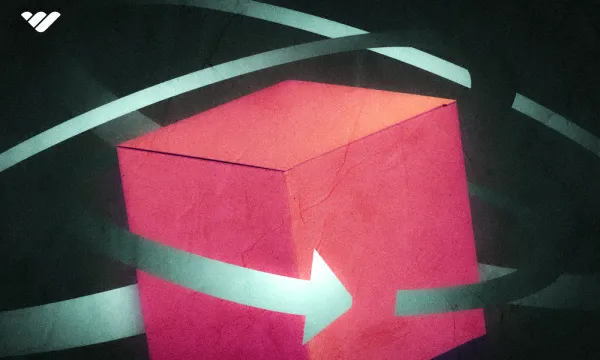

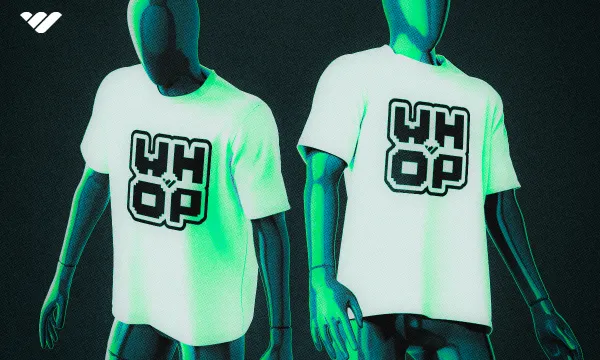
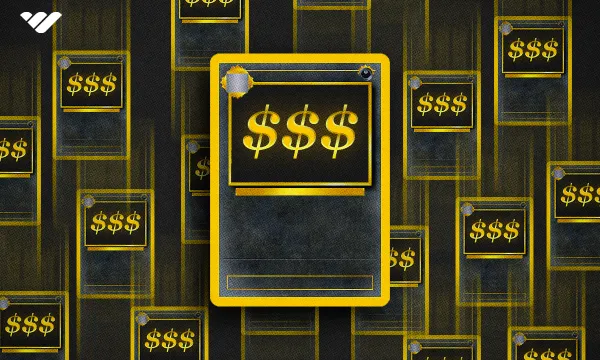
![Top 18 Best Sneaker Reselling Discord Servers [2024]](/blog/content/images/size/w600/2024/01/sneaker-reselling-discord.webp)
